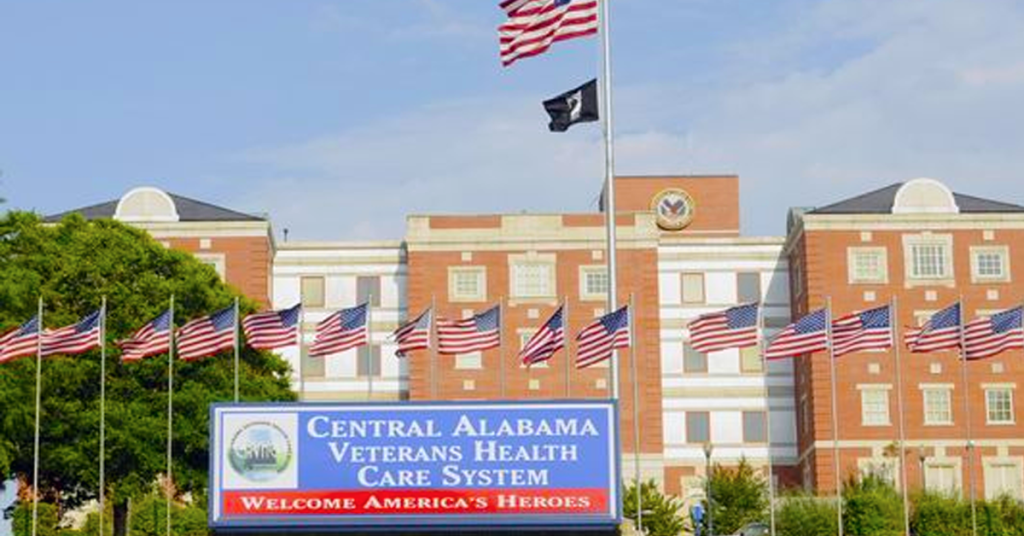Martha Roby: Two years after scandal, progress and hope at Central Alabama VA

This week marks two years since the former director of the Central Alabama Veterans Health Care System (CAVHCS) was fired for mismanagement, after major instances of misconduct, fraud and abuse were exposed. It was an important action to take toward instilling accountability at the VA, but also the first step in the process of rebuilding a health care system that many veterans in Central and South Alabama depend on. That process has been not been easy. Many obstacles have made the path to improving veterans’ care difficult. However, there is significant progress to report. CAVHCS hospitals once ranked the worst in the country for delays in completing patient appointments. Today, the average wait time for completed appointments has been cut in half, from 16.29 days in April 2015 down to 8.54 last month. Much of the improvement can be can be attributed to the continued recruitment of key health care staff, from nurses and doctors to senior managers. I hope this momentum can continue, particularly in the area of mental health services, where a national shortage of professionals has made it difficult for VA to fill vacancies. I’m also eager to see continued improvement in the Choice program that allows veteran patients to access care via local community providers if they so choose. After two years without a permanent director at CAVHCS, Dr. Linda Boyle has been selected to take the helm. Dr. Boyle is a retired Air Force Colonel who spent 24 years in the military, serving as the Medical Group Commander at Patrick Air Force Base in Florida before joining the VA. She has been working as the Interim Director at the Alaska VA Health System for the past year. Dr. Boyle’s appointment is welcome news. The culture of any organization is set by leadership. I believe no single action is more important toward improving veterans’ healthcare in Central and South Alabama than having a permanent director in place who is committed to serving veterans and empowered to make the necessary changes. I look forward to meeting Dr. Boyle in person soon and I stand ready to help her be successful. Last week, Congress passed and President Barack Obama signed into law a bill funding the VA for the next fiscal year. The bill includes a nine percent increase over last year’s total funding to meet increased demand at the VA, with much of it directed toward the most pressing needs: suicide prevention, mental health care services, traumatic brain injury care, and eliminating veteran homelessness. Also, greater whistleblower protections were added and funding was included to ensure resources are available for the VA Inspector General (IG) to continue its important work, including within Central Alabama. The statistics I see and the stories I hear from veteran constituents make me optimistic about the future at the Central Alabama VA. I will continue to press for improvements, doing my part to help build upon recent progress to make sure it is real and lasting. ••• Martha Roby represents Alabama’s 2nd Congressional District. She lives in Montgomery, Alabama with her husband, Riley and their two children.
Martha Roby: Ensuring proper mental health, substance abuse treatment for veterans

The Veterans Affairs saga has had many chapters over the last two years, both on the national and local level. Sensational incidents like missing X-rays, manipulated waiting lists, and a veteran being taken to a crack house grabbed headlines and helped us build the case for overhauling the Central Alabama VA. However, many might not remember that the very first “red flag” indicating there could be a big problem at the Central Alabama VA was a May 2014 report showing that 52 percent of mental health patients waited more than 14 days for a doctor visit. That alarming statistic was emblematic of how the Department of Veterans Affairs has struggled in recent years to keep up with the rising need for mental health care and substance abuse treatment for veterans. There are several reasons why: increased demand from veterans returning from war, a national shortage of mental health professionals and an ongoing prescription drug abuse epidemic. We have made progress combatting these problems. Congress has boosted funding for mental health services and enacted legislation making it easier for the VA to attract mental health professionals. The VA has rightly focused its attention on making sure veterans seeking immediate mental health treatment are seen right away. In Central Alabama, the latest reports show the average VA wait time for a mental health appointment is down to five days. While I’m glad progress is being made, I believe we can do better. I also believe that we owe it to our veterans to look beyond traditional means and bring all available resources to bear in ensuring access to proper mental health care and substance abuse treatment. That’s why this past week I introduced the “Protection and Advocacy for Veterans Act.” This bill would engage our proven Protection and Advocacy agencies to directly investigate the quality of mental health care and substance abuse treatment provided to veterans and to advocate for patients who receive inadequate care from the VA. For 40 years, Protection and Advocacy agencies in Alabama and around the country have provided a critical service by monitoring the quality of care in state-operated hospitals, clinics, psychiatric wards, prisons, and other facilities. They have the authority to inspect medical records, provide recommendations to health care providers, and – when necessary – take legal action on behalf of patients. Americans’ right to mental health care largely stems from Alabama’s famous Wyatt v. Stickney court case, the landmark 1972 ruling that established baseline care requirements for people with mental illness. The expertise Protection and Advocacy agencies have gained ensuring those rights in state facilities could be put to use helping veterans who need mental health care or substance abuse treatment at the VA. We still have a long way to go in improving health services for veterans. That’s why it remains a top priority for me in Congress. • • • Martha Roby represents Alabama’s 2nd Congressional District. She lives in Montgomery, Alabama, with her husband, Riley and their two children.
Martha Roby: New VA facility a turning point, but more improvements needed

You may have seen the news that the Central Alabama VA has opened a new 150,000 square-foot, state-of-the-art clinic on Chantilly Parkway, in Eastern Montgomery. Our veterans deserve a world-class facility like this one, and I was proud to join my colleague Rep. Mike Rogers, community leaders and Veterans Affairs officials to cut the ribbon on such an impressive new facility. The U.S. Department of Veterans Affairs’ new Chantilly clinic is intended to increase access to care for veterans who depend on the VA for medical and psychological services. The deep and complex problems that have plagued the VA nationwide, and particularly in this area, are well-documented. When I worked with whistleblowers and the news media to expose major counts of malfeasance, mismanagement and cover-up within the Central Alabama VA, we knew extensive changes would have to be made and that the road to success would be a long one. But, I am encouraged by recent progress. Badly needed staff has been hired to fill some of the gaps that have existed for years. Major headway has been made to reduce the backlog of patients waiting for appointments. That means more veteran patients are receiving the care they need in a timely fashion. Of course, a new building will not fix all the problems with patient access by itself. As nice as it is, the new facility doesn’t make the journey for care any shorter for veterans living in Greenville, Andalusia, Troy or other areas relatively far from VA hospitals in Montgomery and Tuskegee. That’s why I’m working to build a network of local hospitals, clinics and other providers that can allow many veterans to access care right in their hometown. Very soon, I will be bringing together local, regional and national VA leaders to sit down with hospital CEOs from across Alabama so we can work out an agreement to develop a community veterans health network. When veterans are able to get treated by local providers, it means they aren’t forced to drive long distances to receive care. It also means the demand at VA facilities is lessened so they can tend to the patients already on their rolls. I believe this common-sense, hybrid approach is the future of veterans’ health care, and I’m optimistic we can build a community veterans’ health network in Alabama that can serve as a national model. It’s refreshing to be able to share positive news about our work to improve the VA. My staff and I will remain vigilant in making sure our veterans are receiving the care they need because that’s our job. I hope the opening of the new VA facility marks a turning point in our mission to improve VA services and make sure no veteran gets left behind. Martha Roby represents Alabama’s 2nd Congressional District. She is in her third term.


